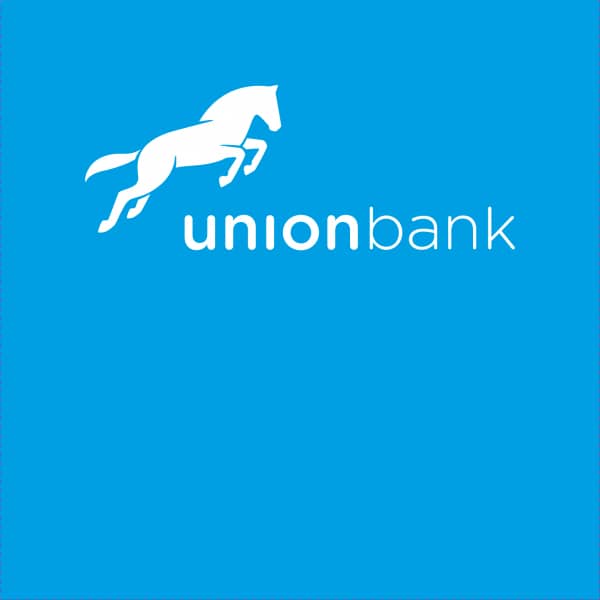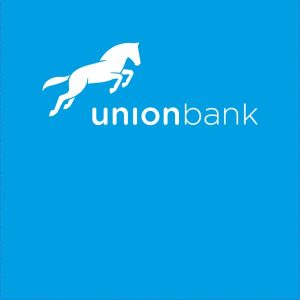Business
Union Bank of Nigeria Plc Group Audited Financial Statements for the Year Ended December 31, 2022

Union Bank of Nigeria Plc
Group Audited Financial Statements for the Year Ended December 31, 2022
Strong revenue growth driven by core business deepening
Union Bank has announced the release of its audited financial statements for the year ended 31st December 2022, which reflects strong financial performance despite macroeconomic headwinds.
Union Bank maintained consistent success due to the disciplined execution of its go-to-market strategy focused on deepening its core business while exploring new areas of opportunity to acquire, engage, and retain customers.
Bank Financial Highlights:
● Gross Earnings: up 19% to ₦208.2 billion (₦175.0 billion in 2021), driven by strong
growth in Net Interest Income.
● Net Interest Income: up 33% to ₦59.1 billion (₦44.3 billion in 2021) driven by growth in earning assets.
● Net Operating Income after impairments: up 10% to ₦110 billion (₦99.7 billion in 2021).
● Profit before Tax: up by 47% to ₦30.2 billion (₦20.5 billion in 2021).
● Operating Expenses: marginally grew by 0.4% to ₦79.4 billion (₦79.2 billion in 2021), reflecting tight cost control despite inflationary pressures.
● Gross Loans: up 11% at ₦1.0 trillion (₦899.1 billion in December 2021) as we expand our lending to vital economic sectors of opportunity.
● Customer Deposits: up 9% at ₦1.48 trillion (₦1.36 trillion in December 2021) as we expand our product base and digital channels.
Key Operational Highlights:
Retail & Digital
Digital
• Channels & Platforms: Union Bank in 2022 invested in strengthening its technology architecture to drive key processes and serve more customers through digital and agent channels. Consequently, active users on UnionMobile increased by 15.7% to 3.8 million users, and active UnionDirect Agents grew by 62.7% to 51,737. This led to an increase in transaction value and volume on UnionMobile by 121% and 20.4%, respectively.
In 2022, we launched a chatbot that enabled real-time interactions with customers. The chatbot has resolved 1.3 million customer complaints, demonstrating its effectiveness in streamlining the complaints resolution process. In addition, we have made several other investments to enhance our customers’ experience. As a result, we have seen significant improvements in the efficiency and efficacy of our customer complaints resolution.
• Digital Propositions: Our priority has been to venture into unexplored avenues within the digital space to generate fresh revenue streams for the Bank. As part of this strategy, we have broadened the usage of our personal finance and lifestyle investment application, M36, which was first introduced in 2021. M36 empowers customers to grow, manage and invest their wealth in high-yield instruments through the self-service platform.
Retail Offerings
The Bank grew its retail deposits by 14% to N675.8 billion from N594.9 billion in 2021. Some of the initiatives which contributed to this growth include:
• Save & Win Palli Promo 2: We rolled out the campaign’s second edition and rewarded over 611 customers with a combined sum of ₦55.5 million. The promo aims to generate low-cost deposits.
• Target Savings Campaign: In time for the World Cup, we rewarded 596 customers with ₦26 million in our flagship target savings campaign and closed out our five-year Target Savings Product (TSP) – UnionKorrect Qatar. Ten customers were rewarded with cash prices of ₦5 million, and 375 customers with sports jerseys.
• Workplace Banking: We re-launched Workplace Banking, our exclusive proposition designed to offer employees convenience while providing support to achieve their goals and aspirations.
Citizenship, Sustainability, and Innovation
• In 2022, we prioritised inclusion and sustainability while focusing on business growth. In doing so, we impacted our employees, customers, and the communities we serve while contributing towards the United Nations Sustainable Development Goals.
― UnionCares: As a yearly tradition, we extend our assistance to the community by providing food boxes to those in need. In 2022, our staff
contributed to this cause by distributing over 1,700 food packages to families all over Nigeria. Furthermore, we extended our support to 15 Non-Governmental Organisations (NGOs), such as the Chess in Slums Foundation and the Special Olympics Nigeria, by providing donations to supplement their commendable efforts.
―Quality Education:We partnered with impactful organisations, including Give Girls a Chance and Child Lifeline, to provide full scholarships to twenty
girls and ten boys in Abuja and Lagos. As part of our Financial Literacy Day and World Savings Day activities, we engaged with more than 4000 students and their teachers.
― Youth Empowerment and Development: In July 2022, we successfully graduated 52 new ‘Techies’ from our first-ever Tech Job Boot camp. This recruitment and training program has significantly contributed to accelerating our go-to-market strategy and further consolidating our position as a formidable player in the financial sector.
Union Bank has been a long-standing supporter of LEAP Africa since 2013, enabling them to empower and equip 170 young social innovators and entrepreneurs to scale their community-changing ideas sustainably over the years. Moreover, our sponsorship of the 2022 Leadership, Empowerment, Achievement, and Development (LEAD) Camp by Junior Achievement Nigeria has empowered more than 300 young girls with critical thinking skills. Through this initiative, we have impacted more than 700 girls over the past eight years.
― Employee Volunteering: Our employees have shown unwavering compassion towards communities and social causes. In 2022, over 265 of our
employees devoted nearly 1000 hours to volunteering for various bank- sponsored initiatives. These initiatives included mentoring sessions with the Women’s Technology Empowerment Centre (WTEC), which aims to promote women’s participation in Science, Technology, Engineering, and Mathematics (STEM), financial literacy drives, SME workshop clinics with social innovators, and visits to orphanages to extend their support.
Commenting on the results, Mudassir Amray, MD/CEO, said:
“Despite the macroeconomic headwinds of 2022, we recorded strong performance across key financial and operational indicators. We were focused on our strategy of deepening our core business segments whilst enhancing our digital channels and service propositions to customers. On the back of this, we are increasing our customer acquisition and engagement, translating into higher revenues across our regions.
The Bank’s gross earnings grew by 19% to N208.1 billion from N175 billion in 2021. Whilst non-interest income declined marginally by 1.0%. Net interest income after impairment grew 26.1% to N55.8 billion from N44.2 billion in 2021 on the back of increasing responsible risk assets. Profit before tax closed at N30.2 billion, representing a growth of 47.1% from N20.5 billion recorded in 2021.
In 2023, we will remain focused on executing our strategic initiatives, which are centred on pursuing additional opportunities to diversify our revenue sources while strengthening our core business. We also look forward to completing the merger of Union Bank of Nigeria and Titan Trust Bank, which began in 2022. The transition has gone smoothly, and I am confident that the combination will make us more formidable and well-positioned to capitalise on market opportunities.
As we progress into 2023, I have no doubts that we will scale through all the macroeconomic pressures and sustain this growth momentum with continued support from the new core investors and board and continued trust from our customers to serve them.”
Speaking on the FY 2022 numbers, Chief Financial Officer Joe Mbulu said:
“Our financial performance is a testament to the disciplined execution of our plans for the year and resilience against all odds. While pursuing liability generation and responsible risk assets, we maintained operational efficiency, managing cost drivers and avoiding wastage.
Operating expenses increased marginally by 0.43% due to increased non-discretionary regulatory costs. Our cost-to-income ratio dropped to 72.5% from 79.4% in 2021 due to cost- control measures implemented during the year.
The Bank’s balance sheet remains strong, with total assets increasing by 8.8% to N2.79 trillion due to growing loans and advances to customers. We expanded our net loan book by 11.5% from N868.8 billion in 2021 to N968.9 billion in 2022. In addition, customer deposits increased by 8.8% to N 1.48 trillion.
While we seek to grow our risk assets, maintaining quality assets remains a key priority. As a result, our NPL ratio reduced from 4.3% to 4.0%, and the capital adequacy ratio remained within regulatory limits at 14.4%.
Financial Summary
Balance Sheet (in billions of Naira) Total Assets
Gross Loans & Advances
Customer Deposits
Shareholders’ Funds
Ratios
Coverage Ratio (incl. regulatory risk reserves)
Average Liquidity Ratio (regulatory minimum – 30%)
Non-Performing Loan Ratio Net Asset Value per share Capital Adequacy
Business
Nigeria’s Inflation Drops to 15.10% as NBS Reports Deflationary Trend

Nigeria’s headline inflation rate declined to 15.10 per cent in January 2026, marking a significant drop from 27.61 per cent recorded in January 2025, according to the latest Consumer Price Index (CPI) report released by the National Bureau of Statistics.
The report also showed that month-on-month inflation recorded a deflationary trend of –2.88 per cent, representing a 3.42 percentage-point decrease compared to December 2025. Analysts say the development signals easing price pressures across key sectors of the economy.
Food inflation stood at 8.89 per cent year-on-year, down from 29.63 per cent in January 2025. On a month-on-month basis, food prices declined by 6.02 per cent, reflecting lower costs in several staple commodities.
The data suggests a sustained downward trajectory in inflation over the past 12 months, pointing to improving macroeconomic stability.
The administration of President Bola Ahmed Tinubu has consistently attributed recent economic adjustments to ongoing fiscal and monetary reforms aimed at stabilising prices, boosting agricultural output, and strengthening domestic supply chains.
Economic analysts note that while the latest figures indicate progress, sustaining the downward trend will depend on continued policy discipline, exchange rate stability, and improvements in food production and distribution.
The January report provides one of the clearest indications yet that inflationary pressures, which surged in early 2025, may be moderating.
Bank
Alpha Morgan to Host 19th Economic Review Webinar

Alpha Morgan to Host 19th Economic Review Webinar
In an economy shaped by constant shifts, the edge often belongs to those with the right information.
On Wednesday, February 25, 2026, Alpha Morgan Bank will host the 19th edition of its Economic Review Webinar, a high-level thought leadership session designed to equip businesses, investors, and individuals with timely financial and economic insight.
The session, which will hold live on Zoom at 10:00am WAT and will feature economist Bismarck Rewane, who will examine the key signals influencing Nigeria’s economic direction in 2026, including policy trends, market movements, and global developments shaping the local landscape.
With a consistent track record of delivering clarity in uncertain times, the Alpha Morgan Economic Review continues to provide practical context for decision-making in a dynamic environment.
Registration for the 19th Alpha Morgan Economic Review is free and can be completed via https://bit.ly/registeramerseries19
It is a bi-monthly platform that is open to the public and is held virtually.
Visit www.alphamorganbank to know more.
Business
GTBank Launches Quick Airtime Loan at 2.95%

GTBank Launches Quick Airtime Loan at 2.95%
Guaranty Trust Bank Ltd (GTBank), the flagship banking franchise of GTCO Plc, Africa’s leading financial services group, today announced the launch of Quick Airtime Loan, an innovative digital solution that gives customers instant access to airtime when they run out of call credit and have limited funds in their bank accounts, ensuring customers can stay connected when it matters most.
In today’s always-on world, running out of airtime is more than a minor inconvenience. It can mean missed opportunities, disrupted plans, and lost connections, often at the very moment when funds are tight, and options are limited. Quick Airtime Loan was created to solve this problem, offering customers instant access to airtime on credit, directly from their bank. With Quick Airtime Loan, eligible GTBank customers can access from ₦100 and up to ₦10,000 by dialing *737*90#. Available across all major mobile networks in Nigeria, the service will soon expand to include data loans, further strengthening its proposition as a reliable on-demand platform.
For years, the airtime credit market has been dominated by Telcos, where charges for this service are at 15%. GTBank is now changing the narrative by offering a customer-centric, bank-led digital alternative priced at 2.95%. Built on transparency, convenience and affordability, Quick Airtime Loan has the potential to broaden access to airtime, deliver meaningful cost savings for millions of Nigerians, and redefine how financial services show up in everyday life, not just in banking moments.
Commenting on the product launch, Miriam Olusanya, Managing Director of Guaranty Trust Bank Ltd, said: “Quick Airtime Loan reflects GTBank’s continued focus on delivering digital solutions that are relevant, accessible, and built around real customer needs. The solution underscores the power of a connected financial ecosystem, combining GTBank’s digital reach and lending expertise with the capabilities of HabariPay to deliver a smooth, end-to-end experience. By leveraging unique strengths across the Group, we are able to accelerate innovation, strengthen execution, and deliver a more integrated customer experience across all our service channels.”
Importantly, Quick Airtime Loan highlights GTCO’s evolution as a fully diversified financial services group. Leveraging HabariPay’s Squad, the solution reinforces the Group’s ecosystem proposition by bringing together banking, payment technology, and digital channels to deliver intuitive, one-stop experiences for customers.
With this new product launch, Guaranty Trust Bank is extending its legacy of pioneering digital-first solutions that have redefined customer access to financial services across the industry, building on the proven strength of its widely adopted QuickCredit offering and the convenience of the Bank’s iconic *737# USSD Banking platform.
About Guaranty Trust Bank
Guaranty Trust Bank (GTBank) is the flagship banking franchise of GTCO Plc, a leading financial services group with a strong presence across Africa and the United Kingdom. The Bank is widely recognized for its leadership in digital banking, customer experience, and innovative financial solutions that deliver value to individuals, businesses, and communities.
About HabariPay
HabariPay is the payments fintech subsidiary of GTCO Plc, focused on enabling fast, secure, and accessible digital payments for individuals and businesses. By integrating payments and digital technology, HabariPay supports innovative services that make everyday financial interactions simpler and more seamless.
Enquiries:
GTCO
Group Corporate Communication
[email protected]
+234-1-2715227
www.gtcoplc.com
-

 celebrity radar - gossips6 months ago
celebrity radar - gossips6 months agoWhy Babangida’s Hilltop Home Became Nigeria’s Political “Mecca”
-

 society6 months ago
society6 months agoPower is a Loan, Not a Possession: The Sacred Duty of Planting People
-

 society5 months ago
society5 months agoReligion: Africa’s Oldest Weapon of Enslavement and the Forgotten Truth
-

 news6 months ago
news6 months agoTHE APPOINTMENT OF WASIU AYINDE BY THE FEDERAL GOVERNMENT AS AN AMBASSADOR SOUNDS EMBARRASSING










